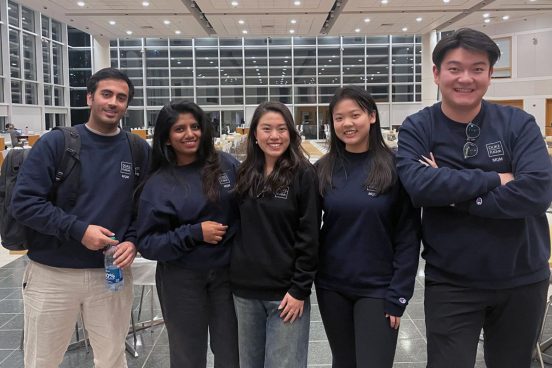Duke MQM Student Blog

Embracing Failure on My Mission to Understand Programming Languages
At times when I believed I was failing, I was actually growing, learning, and understanding.

Gathered in Geneen Auditorium for a Fuqua Distinguished Speakers Series event featuring Linda Rendle, CEO of Clorox, I was encouraged to embrace failure and value curiosity. In the business world, failure is often overlooked due to fear of judgment and society’s fixation on success. Her advice prompted me to reflect on my own journey as a Master of Quantitative Management (MQM) student at Fuqua. In my reflection, I thought about how the spotlight often shines on polished portfolio websites, impressive end-of-term presentations, and eventually our capstone project. But in reality, the hidden narrative of setbacks and invaluable learning experiences truly fuels our growth.
Focusing on Passion in Programming
Before enrolling in the MQM program, my limited coding experience was my greatest concern as I embarked on this academic journey. Expecting to delve deeply into programming languages, I feared struggling with their intricate learning curves. This fear was quickly tested in the summer term’s Programming for Data Analytics course, focusing on Python and R. Desperately trying to understand the functionality of the languages and complete the assignments, I found myself becoming increasingly frustrated with every error message spat back at me (and trust me there were many).
For me, it became evident that I needed to pause and reflect on the reasons behind my choice to pursue this program. My curiosity about data analytics led me to Fuqua because I was determined to learn from experts in the field. Merely completing the coding assignments with the sole intention of passing the course was hindering my curiosity and exploration.
Each new term in the MQM program introduced a different programming language, offering an opportunity to shift my curiosity and learning. The program’s best attribute, in my opinion, is its design of introducing students to various subjects within each course. This encouraged me to explore my curiosities and allowed me to focus on the ones that piqued my interest the most. While not every subject captured my interest, I focused my attention on the ones that did. For me, this was predictive analytics. So, in each course, I focused on material that actively contributed to this field.
Testing My Resiliency Outside of Class
During the month-long winter break, with three terms of the program under my belt, I set a goal to integrate my newfound passion for predictive analytics into various interests through a series of projects and a portfolio website. Embarking on this challenge would be difficult as it required independently developing entire projects, finding my own data sources, and implementing intricate data science models.
After a month of hard work and dedication, I completed a series of predictive analytics projects in sports analytics, revenue forecasting, and income inequality featured on a portfolio website. While these hundred-line coding projects are personal successes they rather deeply represent the hard work, resiliency, and curiosity that went into learning these programming languages and techniques. At times when I believed I was failing, I was growing, learning, and understanding which allowed me to use my passion meaningfully.
In essence, embracing the Team Fuqua spirit facilitated this journey. Without professors ensuring we had access to a plethora of resources and teammates valuing curiosity and a willingness to share their knowledge, it would have been difficult to fully commit to understanding these languages rather than just completing them. Throughout this 10-month program, success should not be measured by final grades but rather by the resilience, growth, and curiosity that enables us to learn and thrive from our failures.



